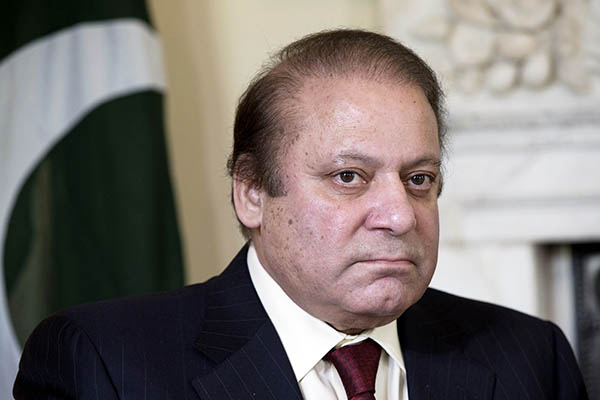
Oli Scarff—AFP
Nawaz Sharif is on the right foreign-policy track.
On his way back from Tajikistan, after inaugurating the Central Asia-South Asia (CASA) electricity transmission line, Prime Minister Nawaz Sharif once again touched upon his policy of improving relations with all the neighboring states of Pakistan. He told the media traveling in his plane that he still held fast to his 1990s strategy of normalizing relations with India as a way of removing tensions and solving the Kashmir problem despite the 1999 Kargil setback.
It is remarkable that Sharif has held on to his faith in shifting from the current “paradigm of escalation” to one of economic advantage. In 2013, as the frontrunner in the election race, he had said he would not allow “militant groups to attack India from this country and would work to improve ties with rival New Delhi if elected.” Amid rumors of bad blood with the Army because of his perceived cozying up to his Indian counterpart, Narendra Modi, he has reiterated a policy that resonates with the entire world, including China.
Pakistan’s rather stagnant strategic culture repels all efforts at normalizing with India. This stasis has resulted in isolating Pakistan globally, the latest negative development being Washington’s admission that Islamabad has dropped low on the U.S. radar of preferences. The souring of Pakistan’s relations with Iran, Afghanistan and Bangladesh is also owed to this India-centric outlook.
Like the prime minister, Gen. Raheel Sharif has also won international praise for introducing flexibility in the county’s approach to the Taliban and other proxy warriors that bother our neighbors. But on relations with India, the Sharif-Sharif equation is seen as disturbed, persuading some media persons to castigate the prime minister for being “slavish” toward India. Encouraged in this popular chastisement of the elected government, TV anchors also recommend getting out of “American slavery” on the issue of the supply of F-16s. This, of course, is a recipe for national solitude that Pakistan simply can’t afford, given our shaky economy and political instability.
